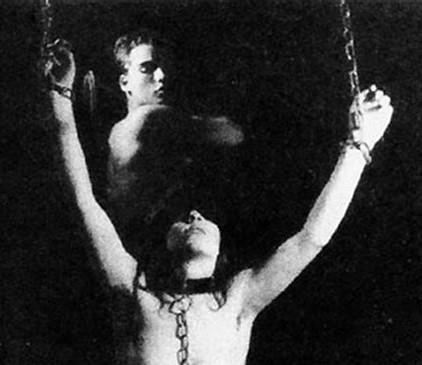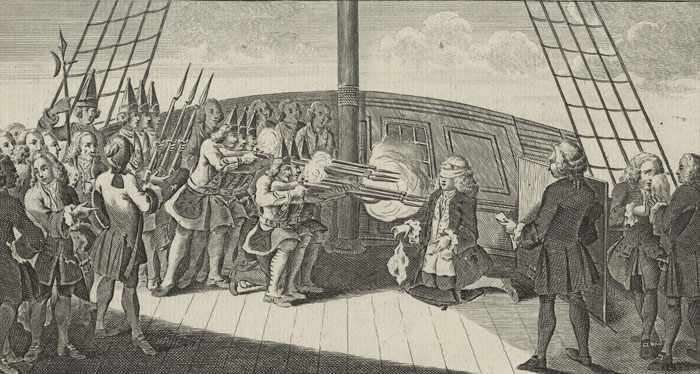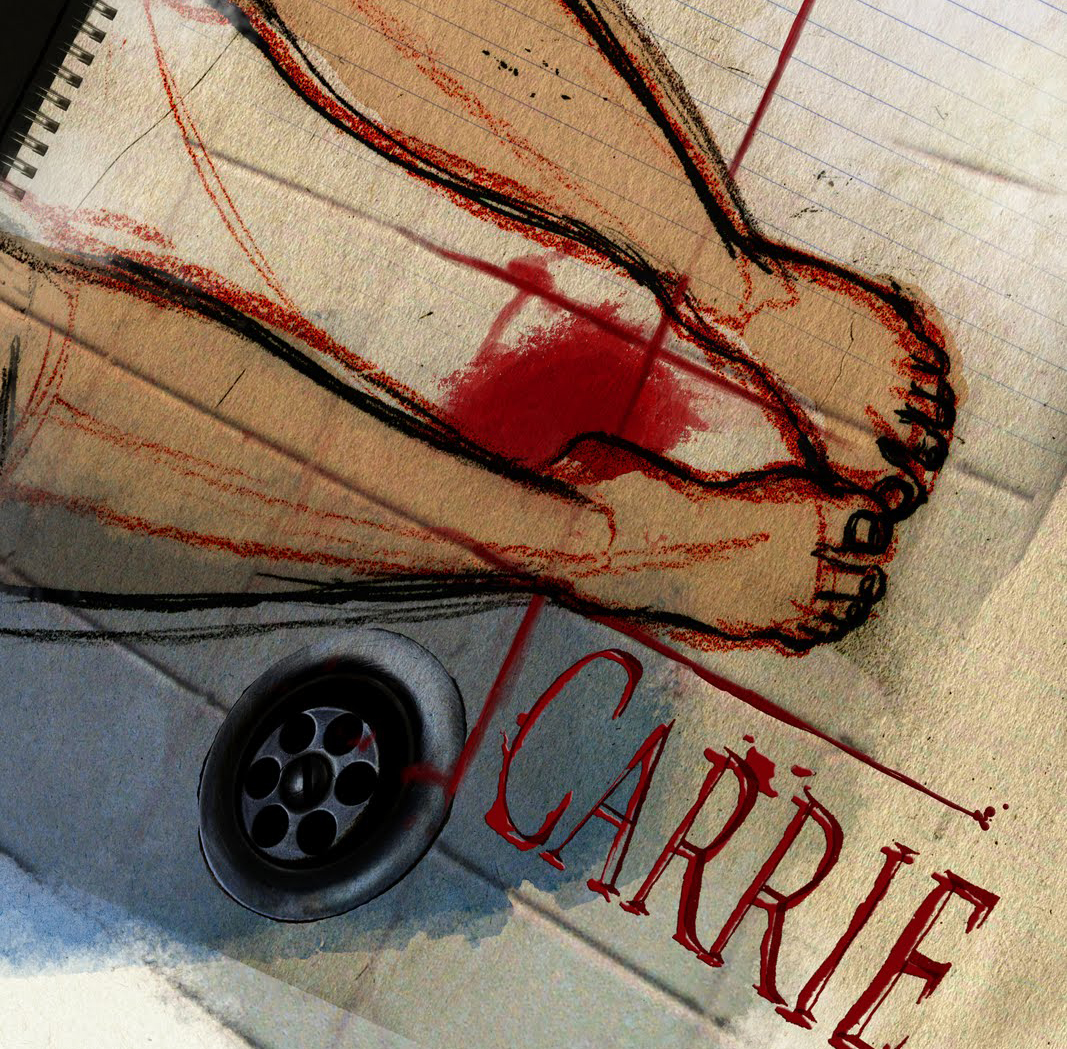In a memorable scene from Voltaire’s 1759 controversial masterpiece, Candide witnesses an execution which was based on real events:
‘And why kill this admiral?’
‘Because,’ came the reply, ‘he did not get enough people killed when he had the chance: he gave battle to a French admiral, and was said not to have engaged closely enough with the enemy.’
‘In which case,’ said Candide, ‘surely the French admiral was just as far from the English admiral as the English admiral was from the French admiral?’
‘Unquestionably so,’ came the reply, ‘but in this country it is considered useful now and again to shoot an admiral, to encourage the others.'1Voltaire, Candide, or Optimism, trans. Michael Wood (London, United Kingdom: Penguin Classics, 2005), 69.
In 1756, at the breakout of the Seven Years’ War, Admiral Byng received orders to defend the British-controlled Mediterranean island of Minorca from the French enemy. His naval mission was under-resourced: more men were needed and the ships required repairs. He requested reinforcements but never received them. When he reached the battle site, he found out that French troops had already landed there. The naval Battle of Minorca took place the following day but it was inconclusive. The cautious admiral decided not to continue losing any more men or ships in a battle where the French had an advantage. He sailed back to Gibraltar for ship repairs. That retreat allowed the French to seize the island.
As soon as he arrived in Britian, he was court-martialled. The court acquitted him of cowardice but convicted him of “failing to do his utmost.” Two main actions by Byng led to his conviction: his return to Gibraltar instead of continuing to engage and opening fire at a distance too great to inflict damage on the French fleet. The latter was satirized in Candide’s exchange above. He defended himself against all charges but the court ultimately applied the law and sentenced him to death. However the court recommended that King George II use his prerogative to exercise mercy. The King refused. All requests for clemency were subsequently denied. A few weeks after the verdict, he stood before a firing squad while kneeling on a cushion. At the drop of a handkerchief as a pre-arranged signal, they shot him dead. He became the first and only British admiral to be executed.
Many among the mobs who once chanted ‘swing, swing Admiral Byng’ had a change of heart due to the startling news of his impending execution and the public sentiment that other admirals are scapegoating him to cover up a bigger failure.
This notorious legal episode was recorded in literature and film, and immortalized by Voltaire in his book Candide. Voltaire harbored an admiration for a lot about Britain such as its philosophers, tolerance and openness, and its fair legal system and considered it the most progressive nation in Europe. But he used Byng’s execution to reiterate the main cynical point of the book regarding our “miserable world” and how even England is far from perfect. His satirical condemnation: “in this country it is considered useful now and again to shoot an admiral, to encourage the others” (dans ce pays-ci, il est bon de tuer de temps en temps un amiral pour encourager les autres). The last four words became a famous ironic expression and were even granted an entry in English dictionaries.
Byng’s epitaph reads: “To the perpetual disgrace of public justice the Hon’ble John Byng Esqr, Admiral of the Blue, fell a martyr to political persecution March 14 in the year 1757, when bravery and loyalty were insufficient securities for the life and honour of a naval officer.” His descendants, 260 years later, are still campaigning for a posthumous pardon.
To read all controversial passages from Voltaire’s Candide, click here.
Other controversial books:

UNCENSORED!
Story of O: The sadomasochistic passages
Why was the 1950s French erotic novel taken to court?
BOOK: STORY OF O

UNCENSORED!
Candide: The Shocking Bits
Why is Voltaire’s Candide, or Optimism controversial?
BOOK: CANDIDE
Endnotes





